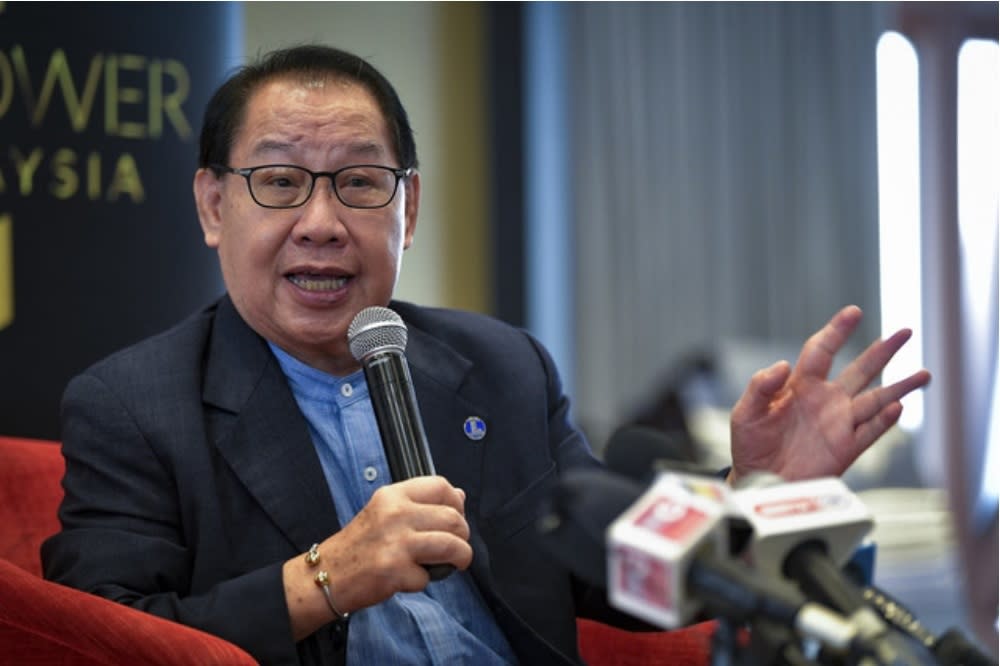On 33rd anniversary of release, Jeffrey Kitingan recalls horror of 1991 ISA detention but says he holds no grudges again Dr Mahathir

KOTA KINABALU, May 14 — Thirty-three years after being released from jail, following his detention under the Internal Security Act (ISA), veteran Sabah politician Datuk Seri Jeffrey Kitingan says he holds no grudges against then prime minister Tun Dr Mahathir Mohamad.
Ostensibly persecuted for wanting Putrajaya to fulfil Sabah’s rights within the Malaysian federation, Kitingan said that in the end, the pain and suffering of the 26-month detention was worth it to see state rights become a mainstream argument with all local parties.
“People called me crazy for going on about Sabah’s rights till I was detained. But I was right because now everyone is ‘crazy’ even Dr Mahathir. So, in this game, you can say I won because he is ‘crazy’ enough to set up the special MA63 (Malaysian Agreement 1963) committee.
“I’m not the only ‘gila’ one now,” he said during an online forum organised by Sabah Way Forward on the 33rd anniversary of his release.
Now the Sabah deputy chief minister, Kitingan said that despite the hell he went through, he held no grudges, having found peace and spirituality through meditation and self-reflection.
“When I was in detention, I was asked whether I hate him. I said no, but I was angry with him, but I forgave him and those who betrayed me. I don’t keep anything. If you tie yourself to the past, you won’t move forward. So I won’t hold any grudges. I let go and move on.
“Before I was detained, he called me and said, ‘Don’t teach people what they don’t know.’ So I am happy Mahathir is here to see the end of the fight. I did teach the people, and when he became prime minister the second time he set up a special committee,” he said.
Widely regarded as the pioneer for championing state rights, Kitingan said he never regretted his actions which led him to imprisonment without trial.
“I was prepared to die for my country. And I did die. I died but I was alive. They took my freedom. Took me from my family. They took everything from me. I knew I was right. I was glad that I could do something for Sabah,” he said.
Getting emotional when recalling the memory, Kitingan said that he was determined not to be like other inmates who had lost their mind and were trying to kill themselves by climbing buildings and hitting their head against the wall.
“I told myself I was grateful for this experience to learn and be strong. I withstood all the pain of isolation and helped others emotionally. I was able to counsel other detainees. I wrote books, songs, and poems.
“I made friends with the detainees, like the communists. They taught me how to do qigong. I taught them taekwondo, to kill time. It was not easy to be away from your family and to be confined. But I was glad that I was strong enough to survive until today,” he said.
Kitingan said that since then, there has been progress in the reinstatement of Sabah’s rights over the years and under the current administration, but that there was still a long way to go for Sabah to get back what it was owed from the federal government.
“My detention did raise the issue until it became critical, and finally, there was a special committee on MA63. That is good, that is progressing. But the issue of revenue sharing is still not complied with for the last 60 years,” he said.
Kitingan lamented that Sabah leaders agreed to form Malaysia on the basis that they would be partners and that present-day Malaysia was not the one that Sabah had aspired to be part of.
“We aspired to be a real nation and that we must be independent first to form that nation. We are supposed to be a confederation of nations but what happened is not that. In the end, it is a national takeover as we were treated as one of the 13 states,” he said.
“I hope the future generation will take this struggle forward until we achieve our freedom,” he said.



